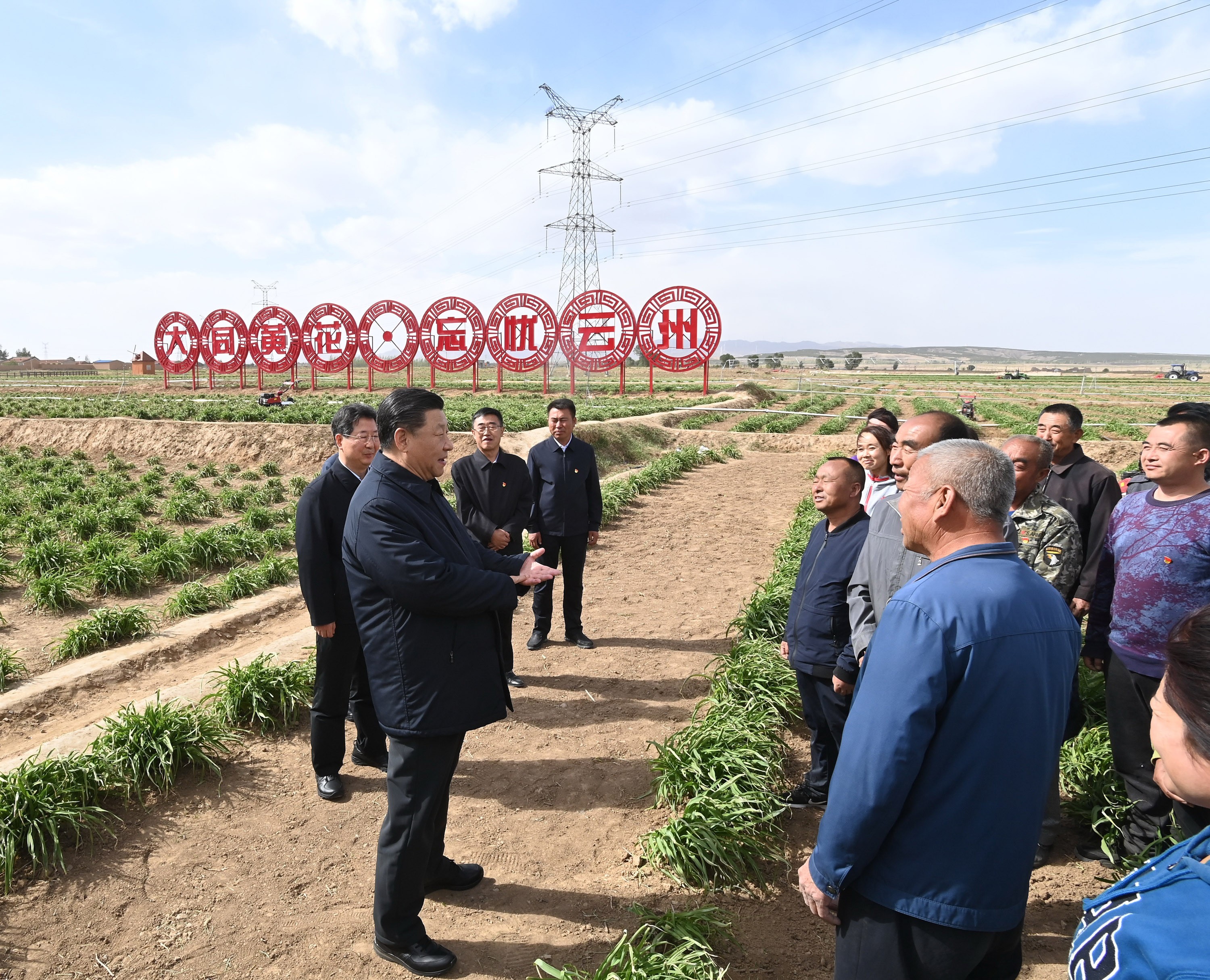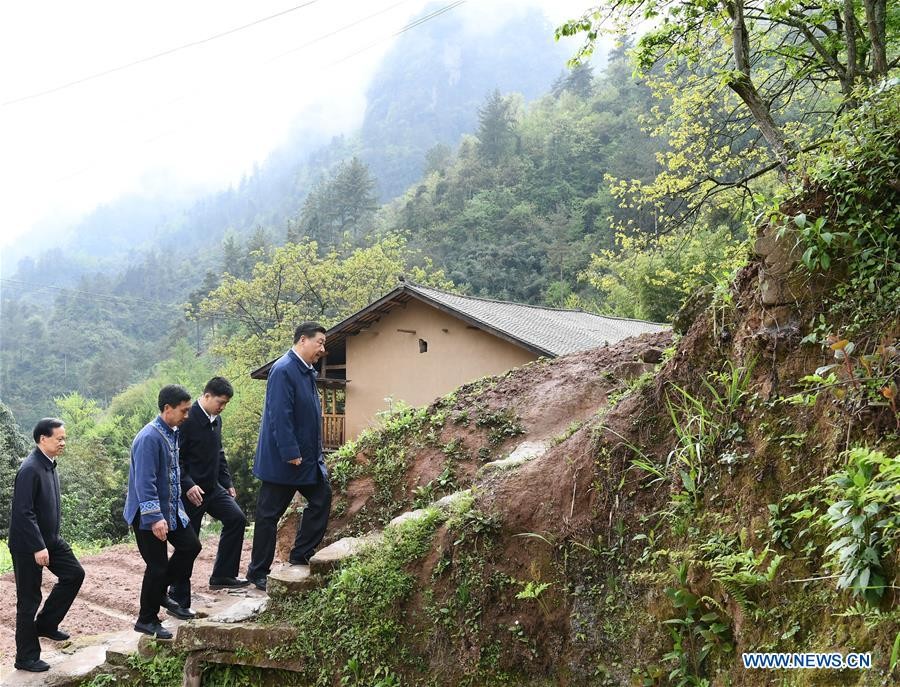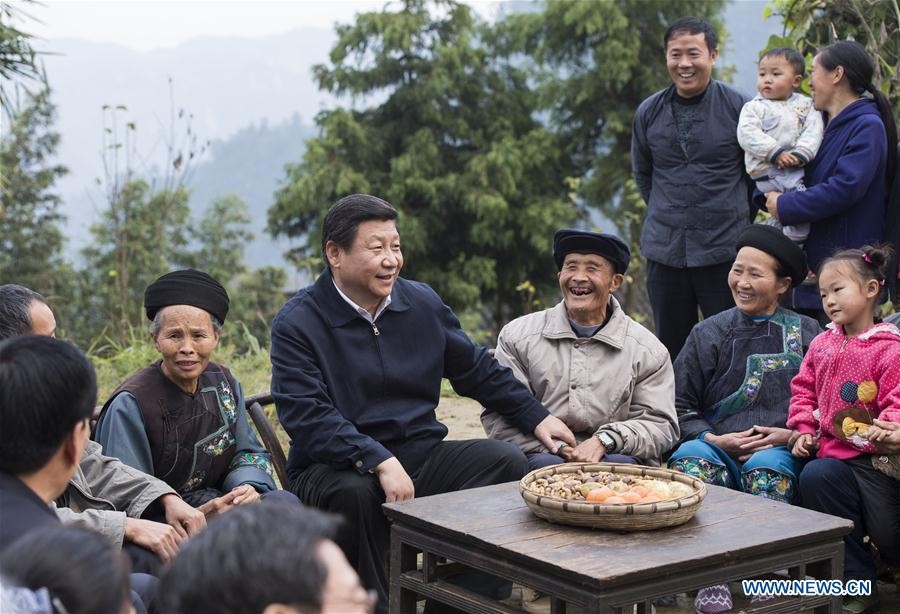Since the 18th Communist Party of China (CPC) National Congress, Chinese President Xi Jinping has traveled to the 14 most severely impoverished areas across the country and inspected more than 20 extremely impoverished villages.

President Xi learns about poverty alleviation at an organic daylily farm in Yunzhou District of Datong, North China's Shanxi Province, May 11, 2020. (Photo: Xinhua)
The annual income of farmers, reimbursement of medical expenses and even the condition of toilets were among Xi's expressed concerns.
Annual salary
In May, Xi inspected Datong in North China's Shanxi Province. An organic daylily farm in Yunzhou District of Datong was his first stop.
Talking with villagers, Xi expressed care about their annual income. Knowing that the daylily industry delivered an annual average income of more than 10,000 yuan ($1,437) for poor households last year, Xi stressed efforts to protect and develop the daylily industry and give full play to its role in poverty alleviation.
He also pointed out that what he cared most about was how to stabilize the results of poverty alleviation policies, prevent a return to poverty and ensure a continuous increase in villagers' incomes after they rid themselves of poverty.
Medical reimbursement
In April 2019, Xi came to Huaxi Village in Southwest China's Chongqing, a provincial-level municipality, and visited Tan Dengzhou's family.
Tan returned to poverty due to illness and injury in 2018. Poverty relief policies helped Tan gradually rid himself of poverty and his basic life received guaranteed assistance.
Xi talked with Tan about annual income, government subsidies and medical expenses and reimbursement.
Xi asked how much medical reimbursement Tan and his wife received. Seeing they had no worries about food, clothing, medical care and housing, Xi said, "If a policy is good for the people, it is truly good, and we will stick to it."

President Xi walks to the house of Tan Dengzhou, an impoverished villager in Huaxi Village of Shizhu Tujia Autonomous County, Southwest China's Chongqing, April 15, 2019. (Photo: Xinhua)
Toilet type
China's key political gathering is typically known as the two sessions, referring to the proceedings of the National People's Congress (NPC) and, in parallel, an advisory body called the Chinese People’s Political Consultative Conference (CPPCC).
During last year’s two sessions, Xi asked a deputy from Inner Mongolia delegation about the situation of toilet renovation in a rural village.
Xi wanted details about a toilet upgrade program in the village.
In recent years, Xi has often walked into the homes of farmers and asked about the toilet situation during inspections.
According to reports, 80 percent of infectious diseases in rural areas of China are caused by fecal pollution in toilets and unsanitary drinking water.
Xi has focused on the toilet issue and demanded government "work harder to make up for this shortcoming that affects the quality of people’s life."
Village weddings
During the two sessions in 2016, Xi asked about the situation of a poor village in discussions with deputies from Central China's Hunan Province.

President Xi talks with Shibadong villagers and cadres in Paibi Township of Huayuan County in the Tujia-Miao Autonomous Prefecture of Xiangxi, Central China's Hunan Province, Nov. 3, 2013. (Photo: Xinhua)
In 2013, Xi went to the village for an inspection and learned that apart from poverty, there were many bachelors in the village.
Three years later, Xi still remembered the marriage issue in the village.
From 2013 to 2019, the per capita annual income of the village increased from 1,668 to 14,668 yuan, and 30 people found marriage partners.
Agriculture & tourism
In June 2015, Xi visited Huamao Village in Southwest China's Guizhou Province.
He walked into an "agritainment" – agricultural entertainment – resort run by villager Wang Zhiqiang and asked Wang about tourism.
In 2019, the village's income from rural tourism reached 600 million yuan, and the per capita annual income increased from about 7,000 yuan in 2015 to more than 17,000 yuan. More villagers were seeking better lives by operating farmhouses.
Xi has expressed confidence in achieving the goal of China fully completing poverty alleviation targets this year.
Poverty alleviation has always been an important part of the president's work.
(Translated by Zhu Naiqing and edited by Zhang Jian and Zhan Huilan)


